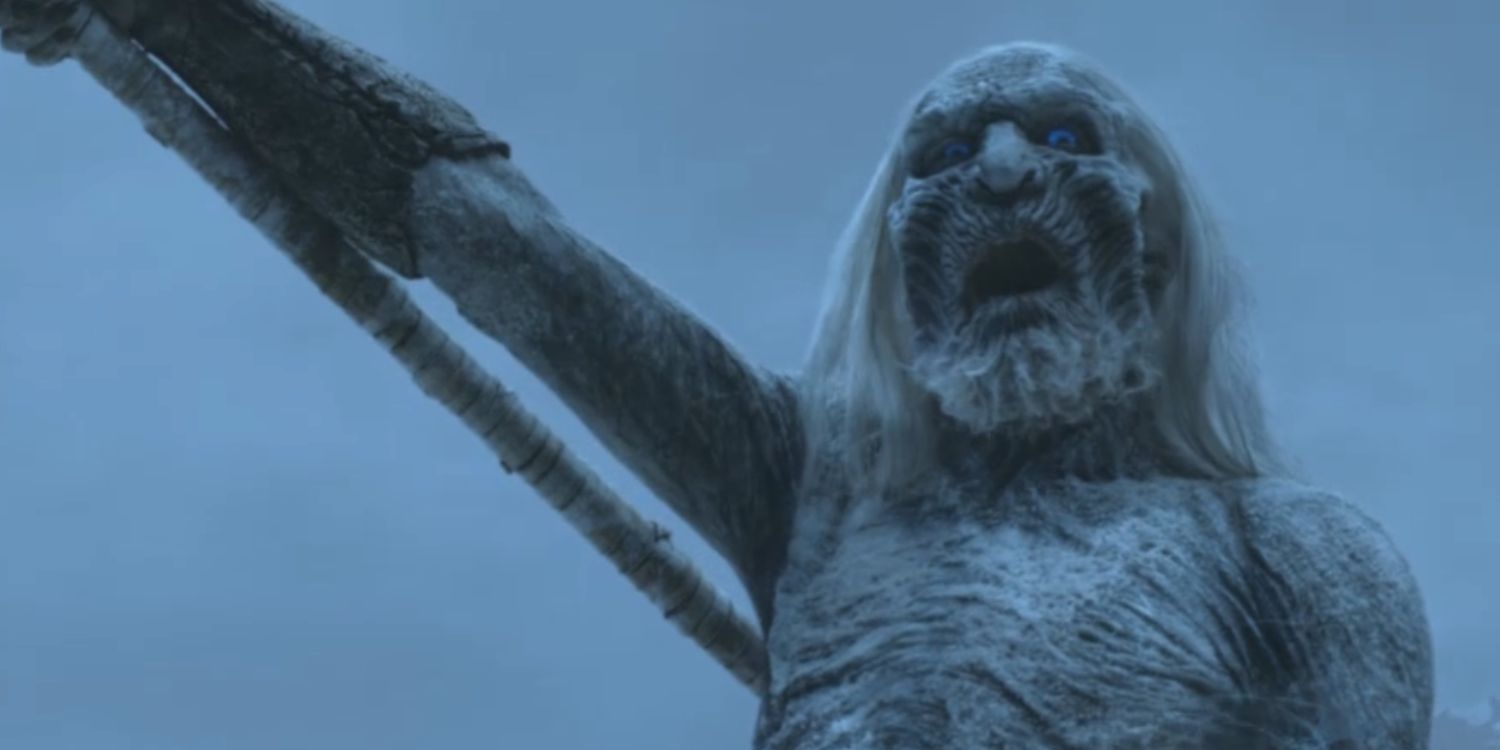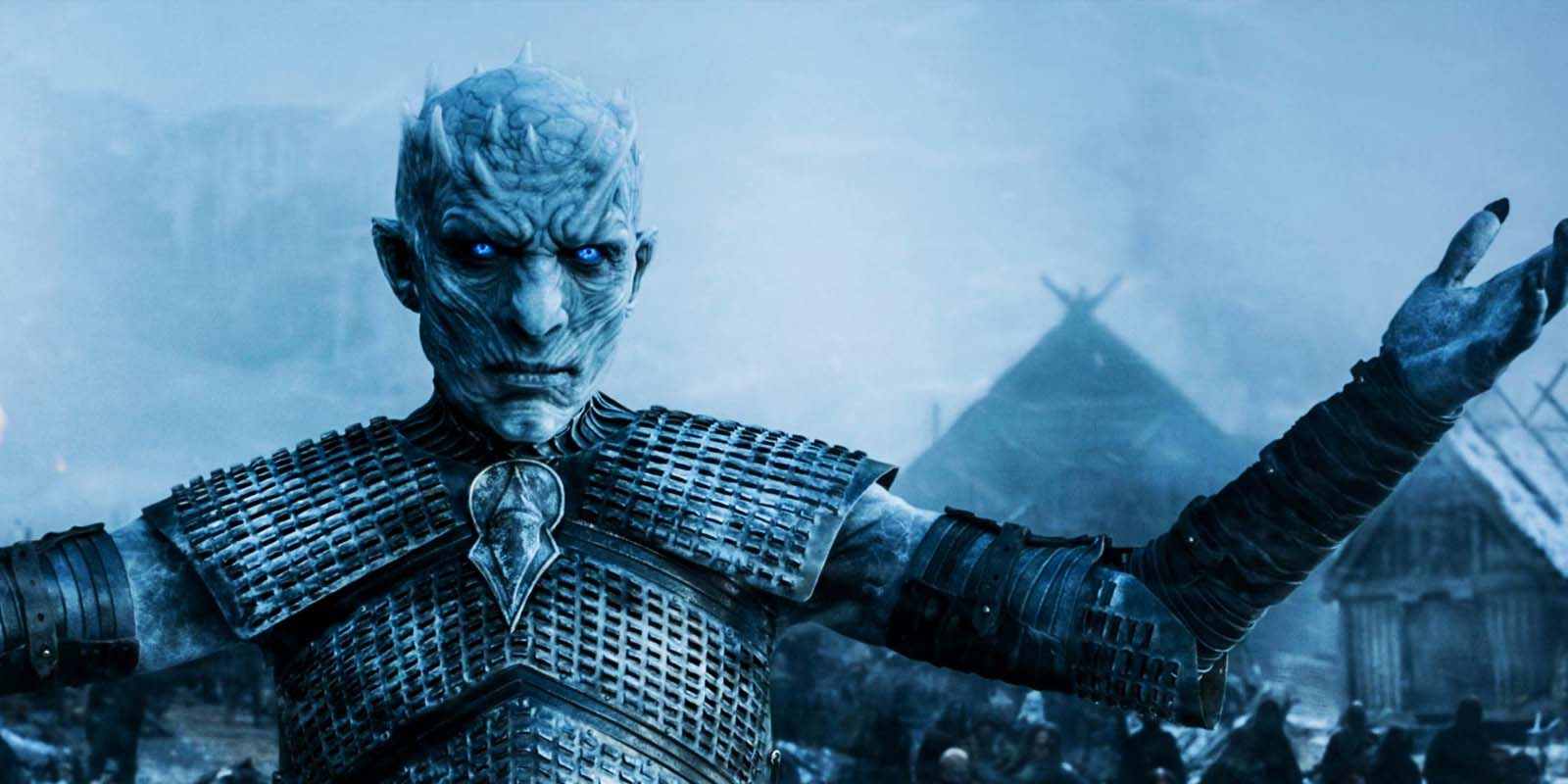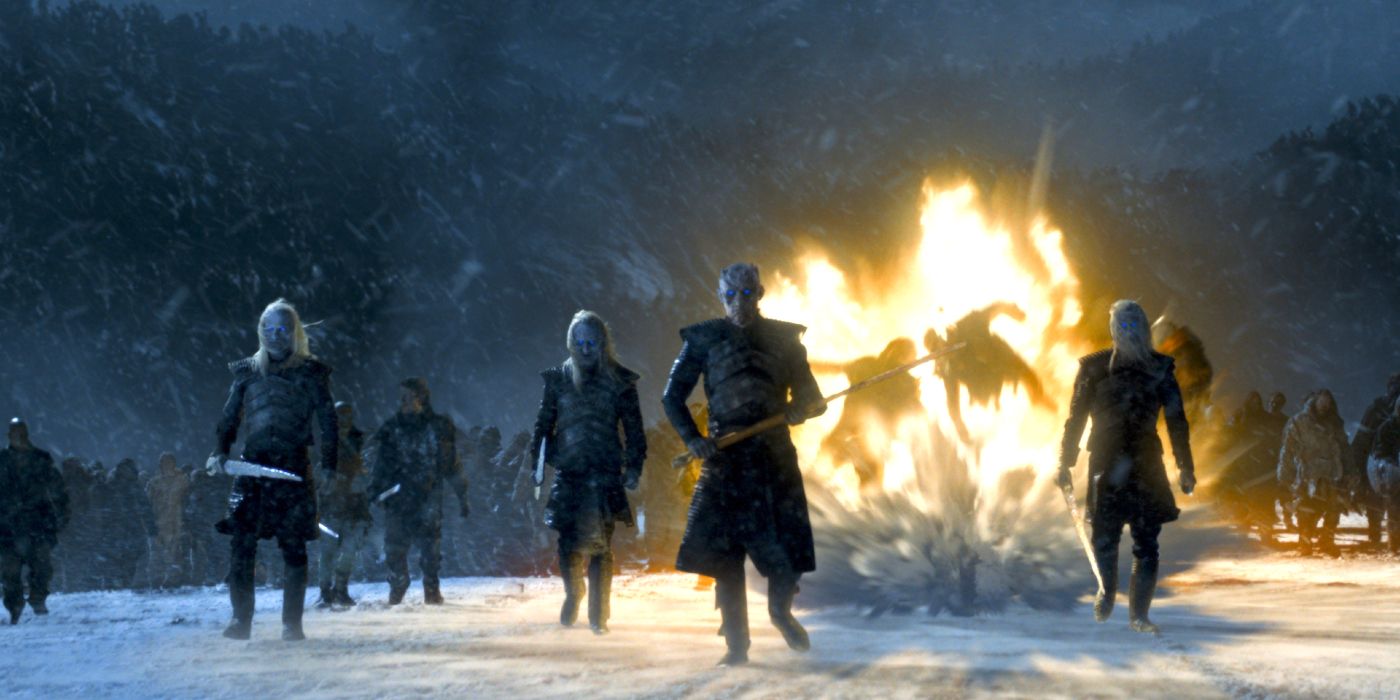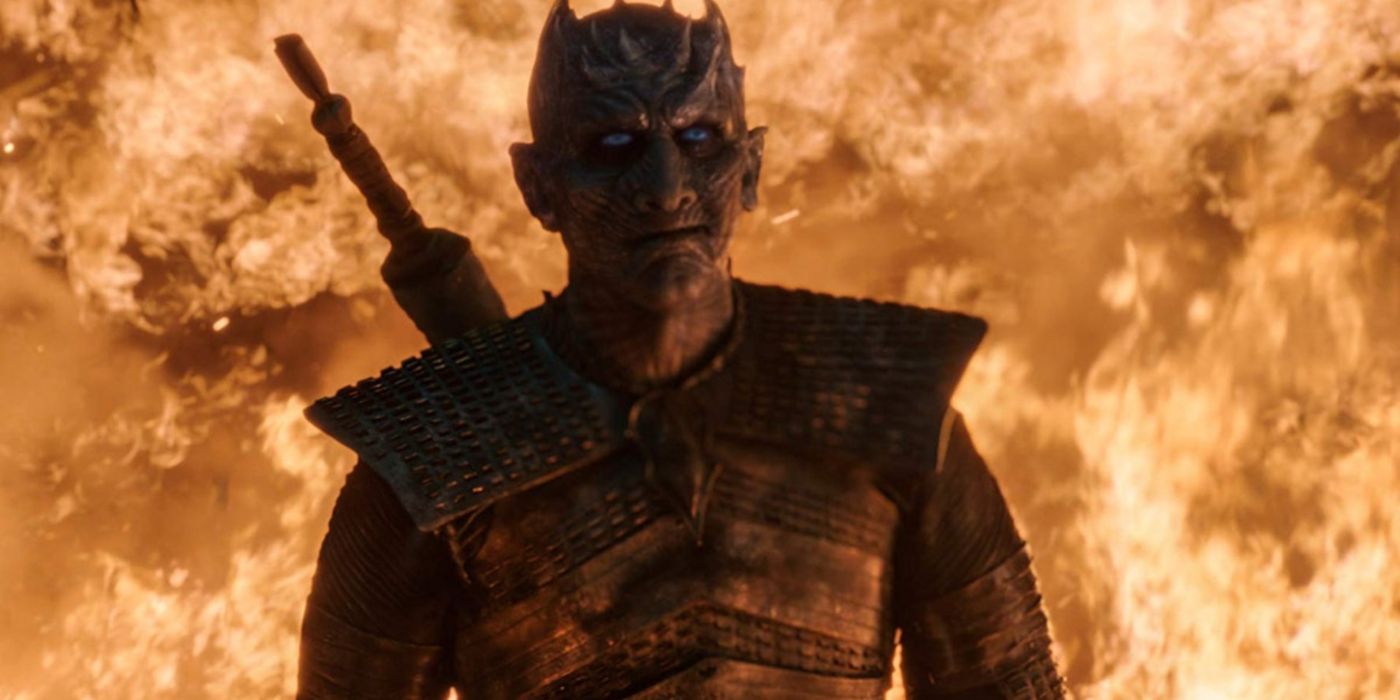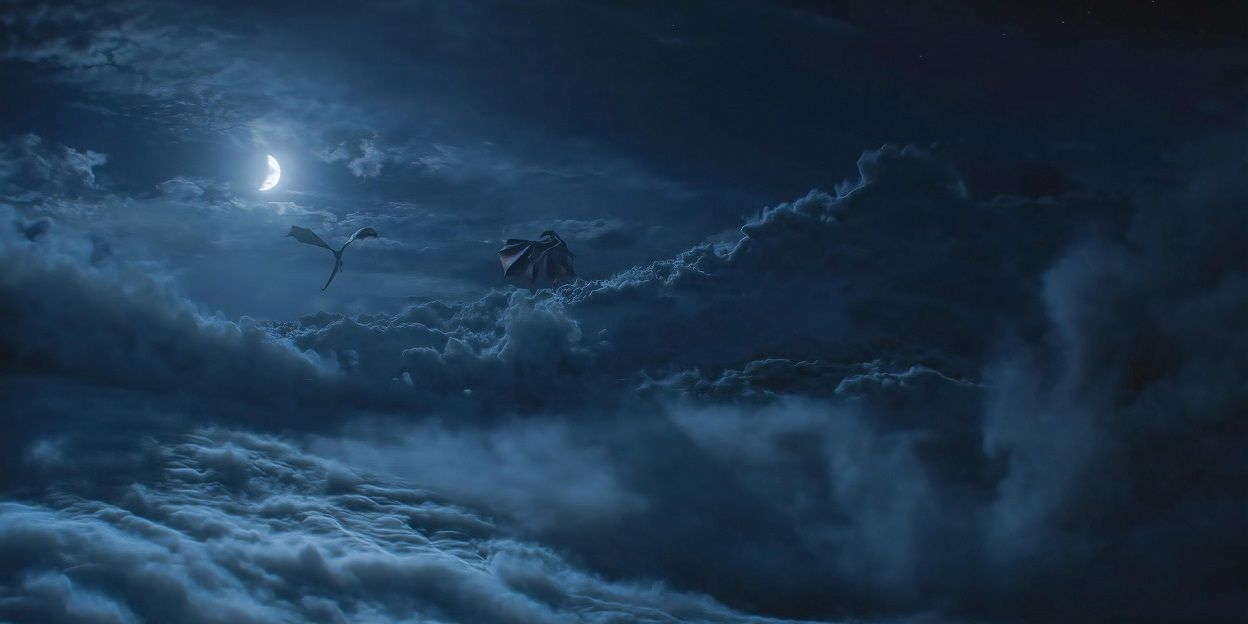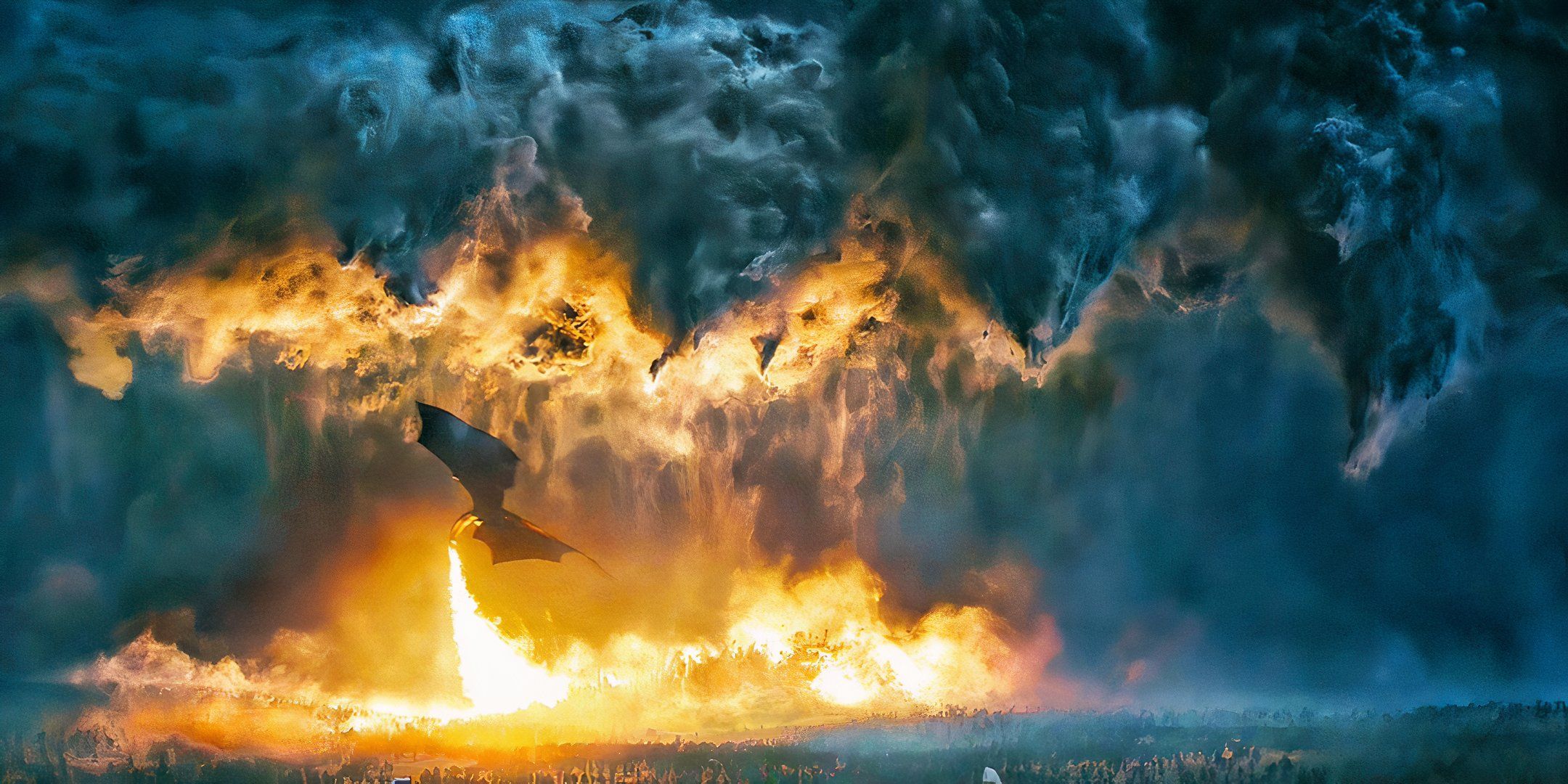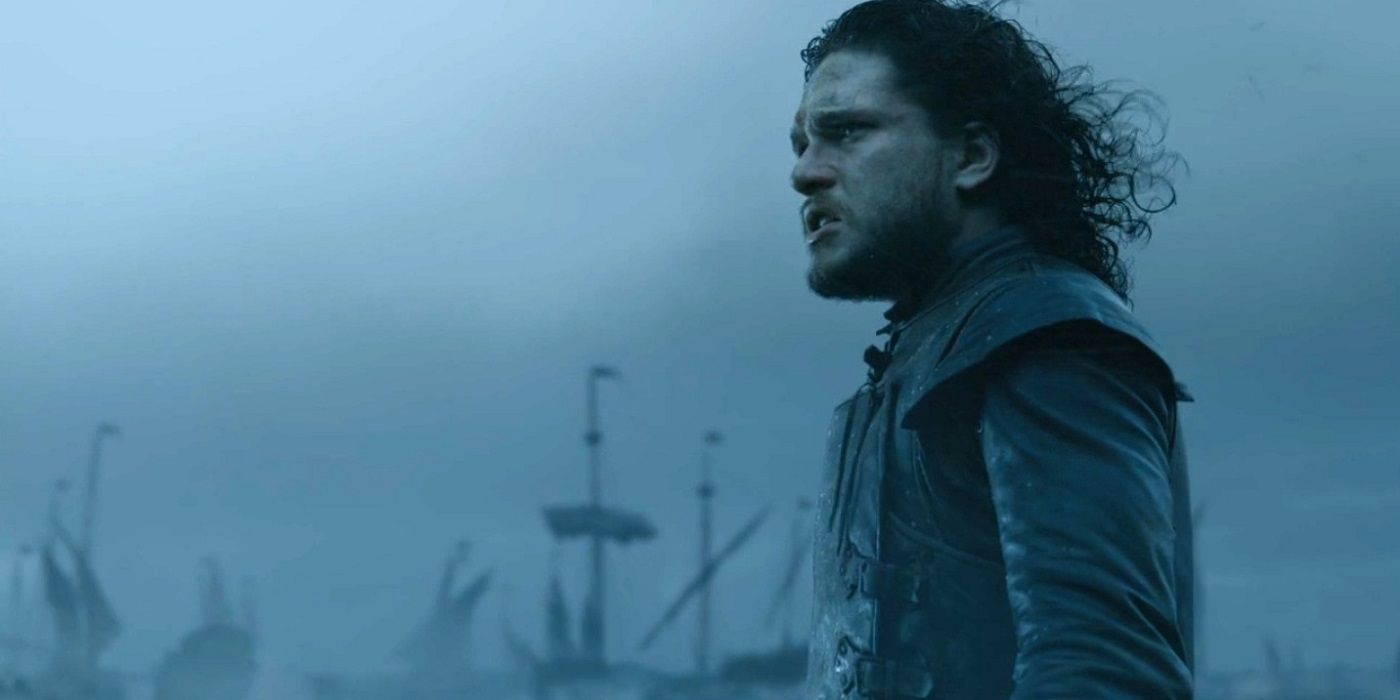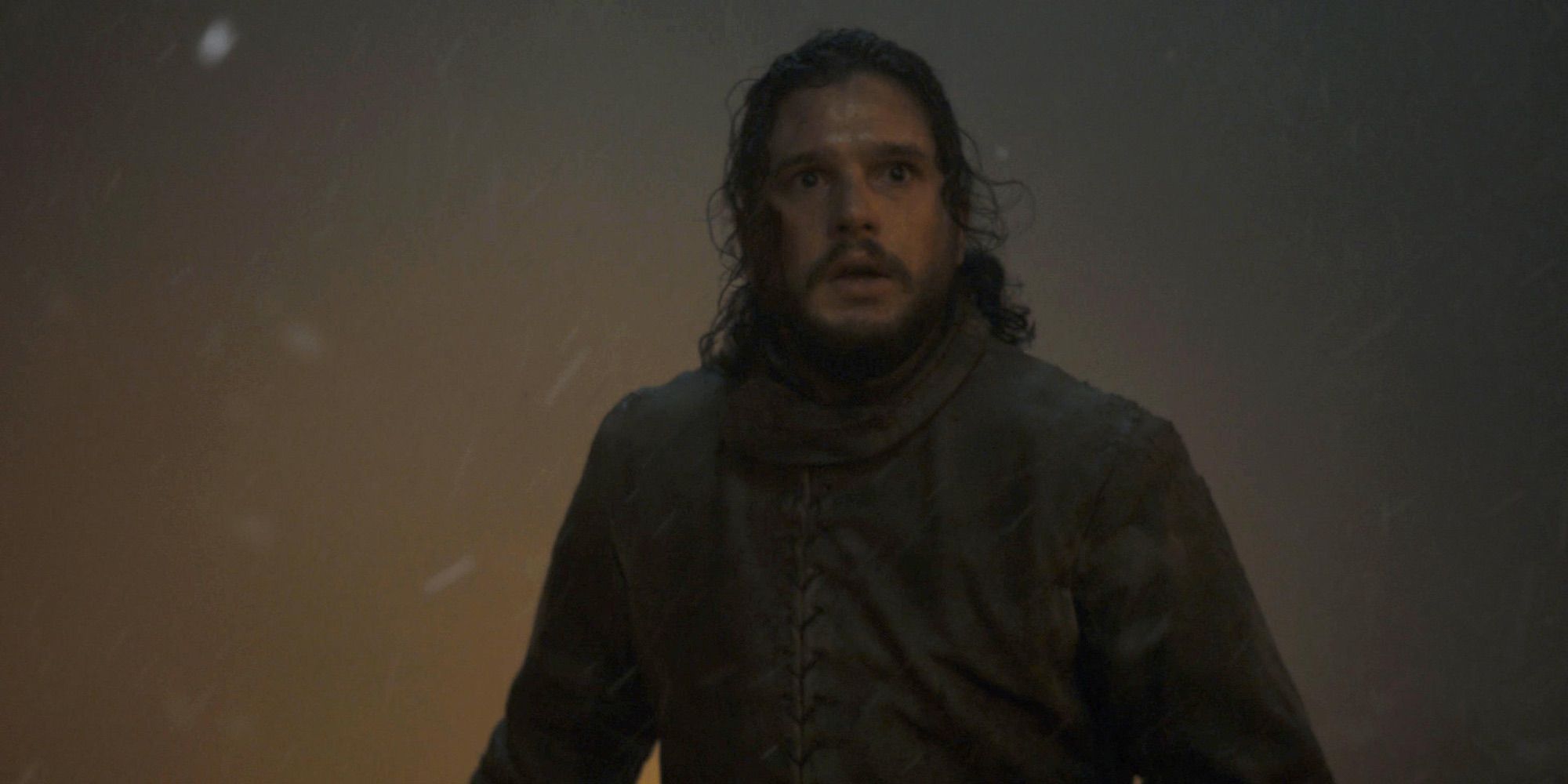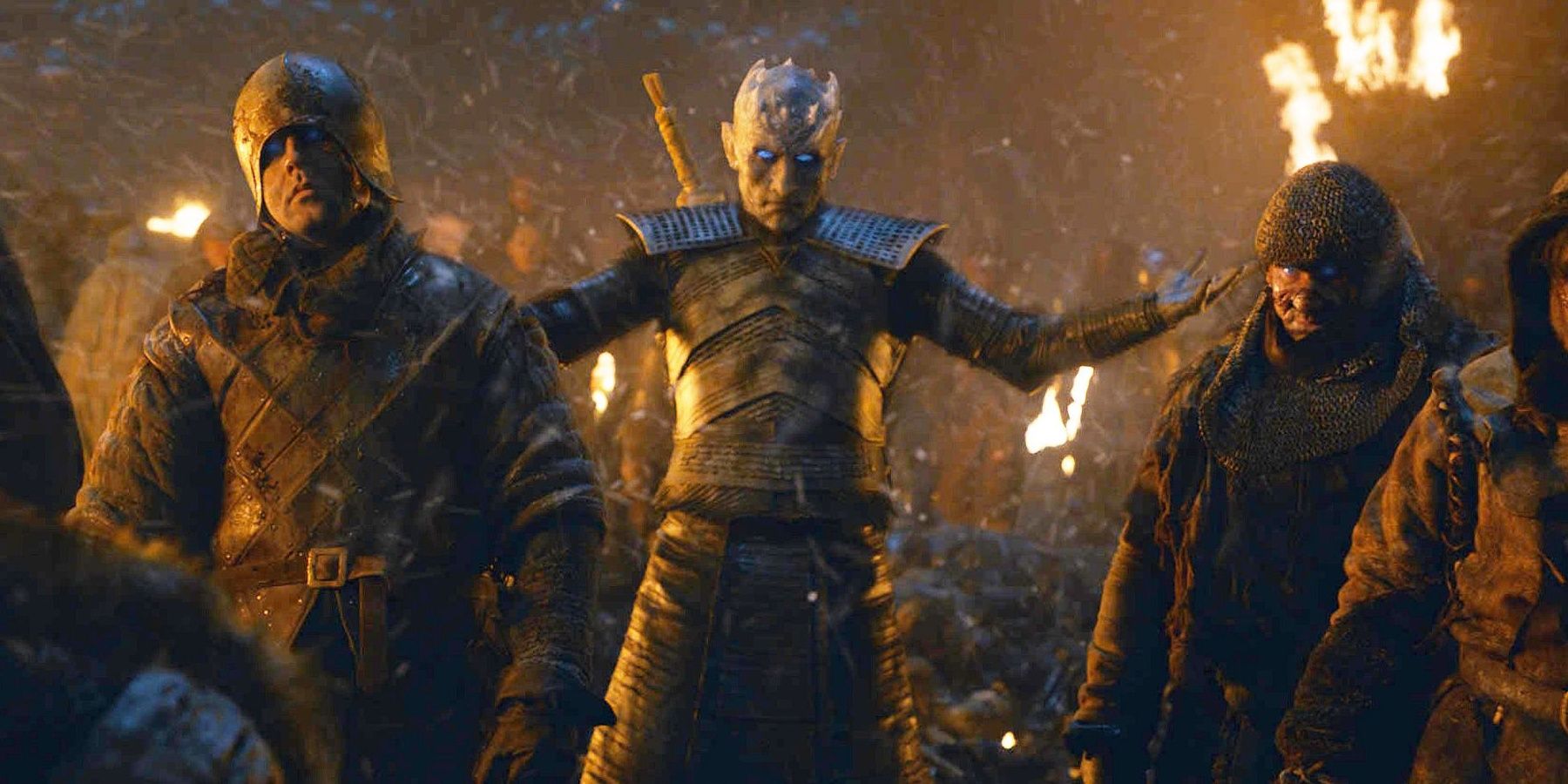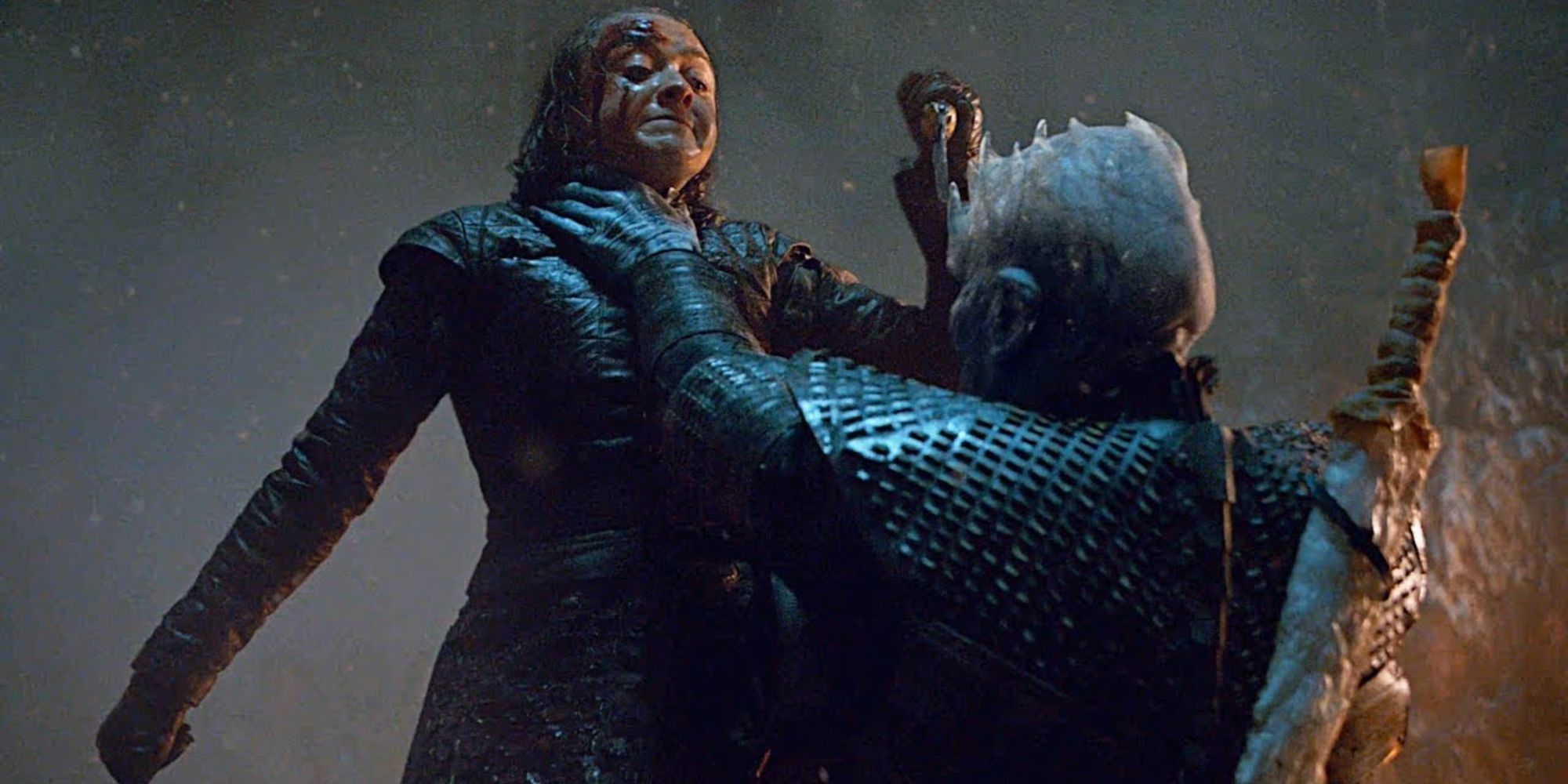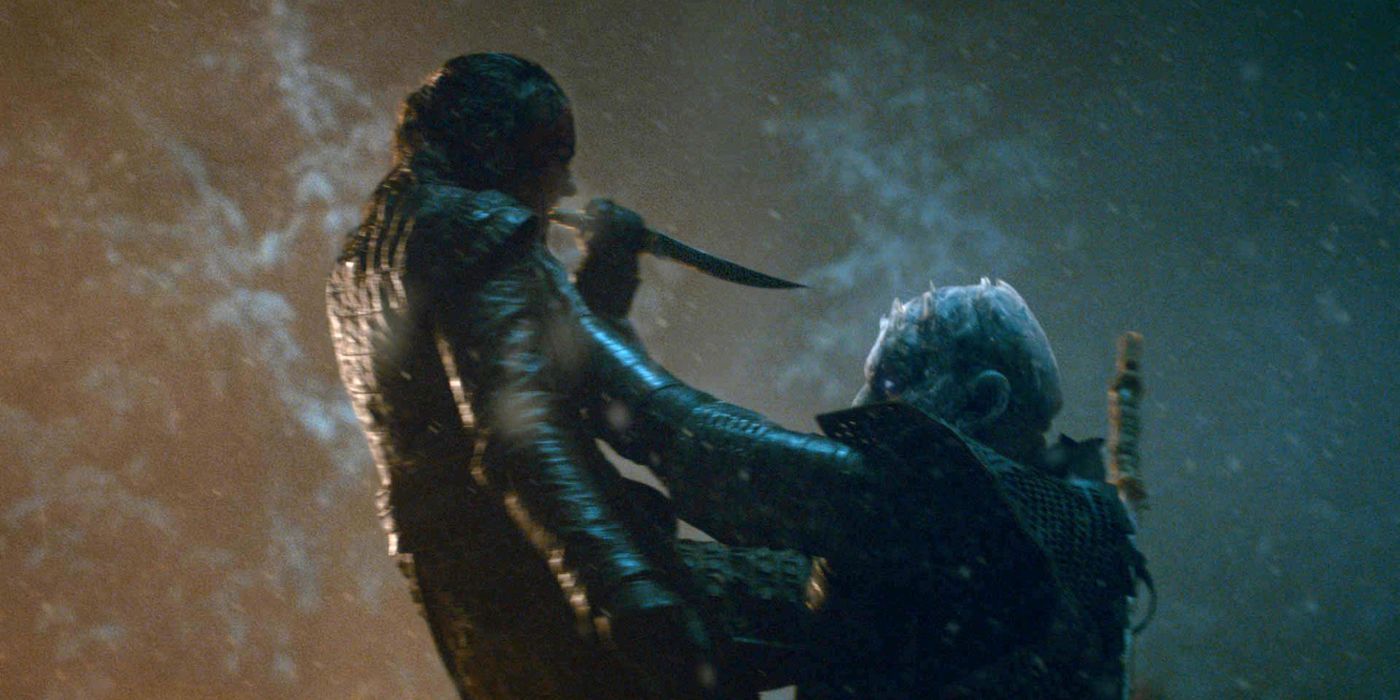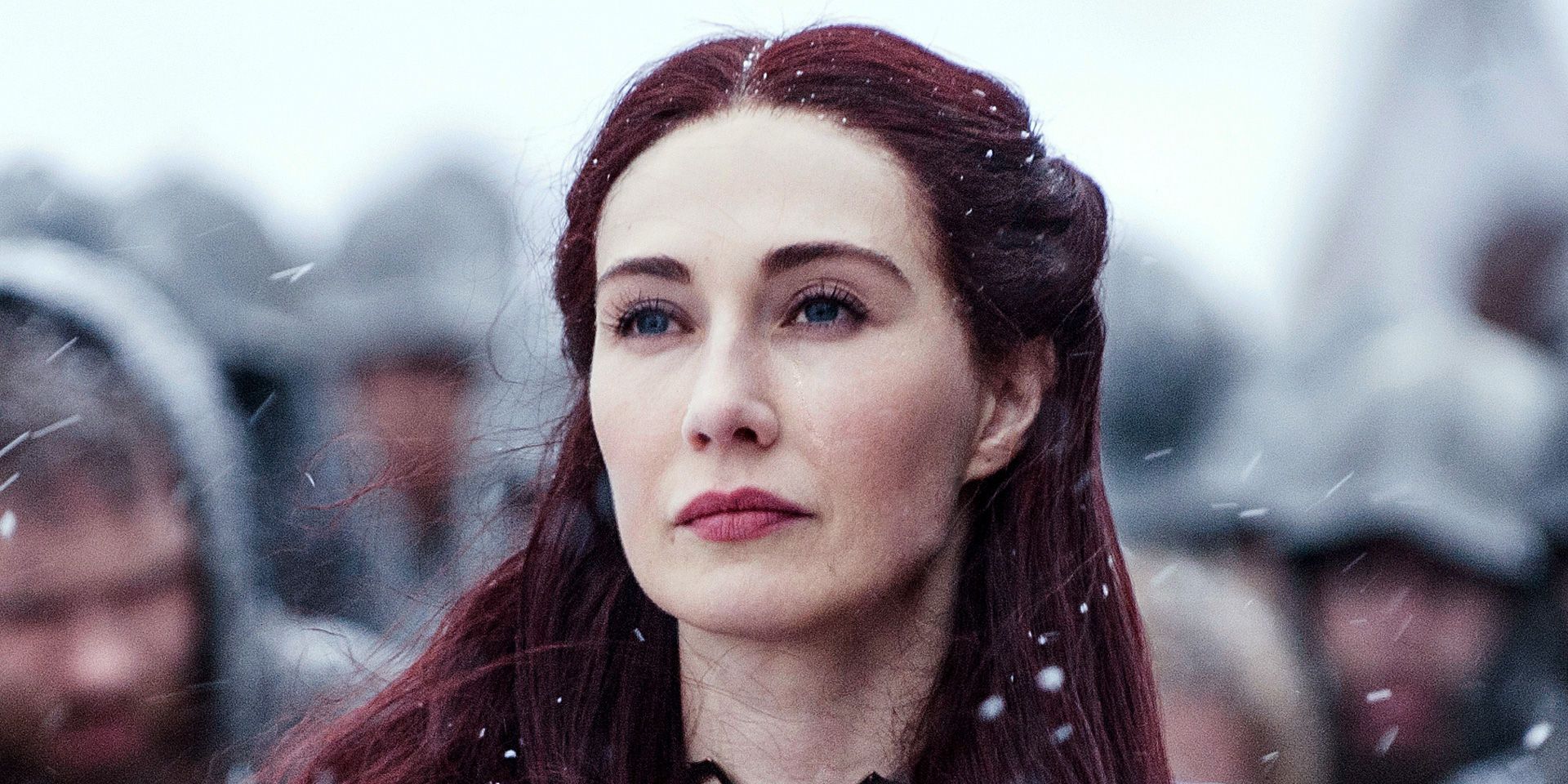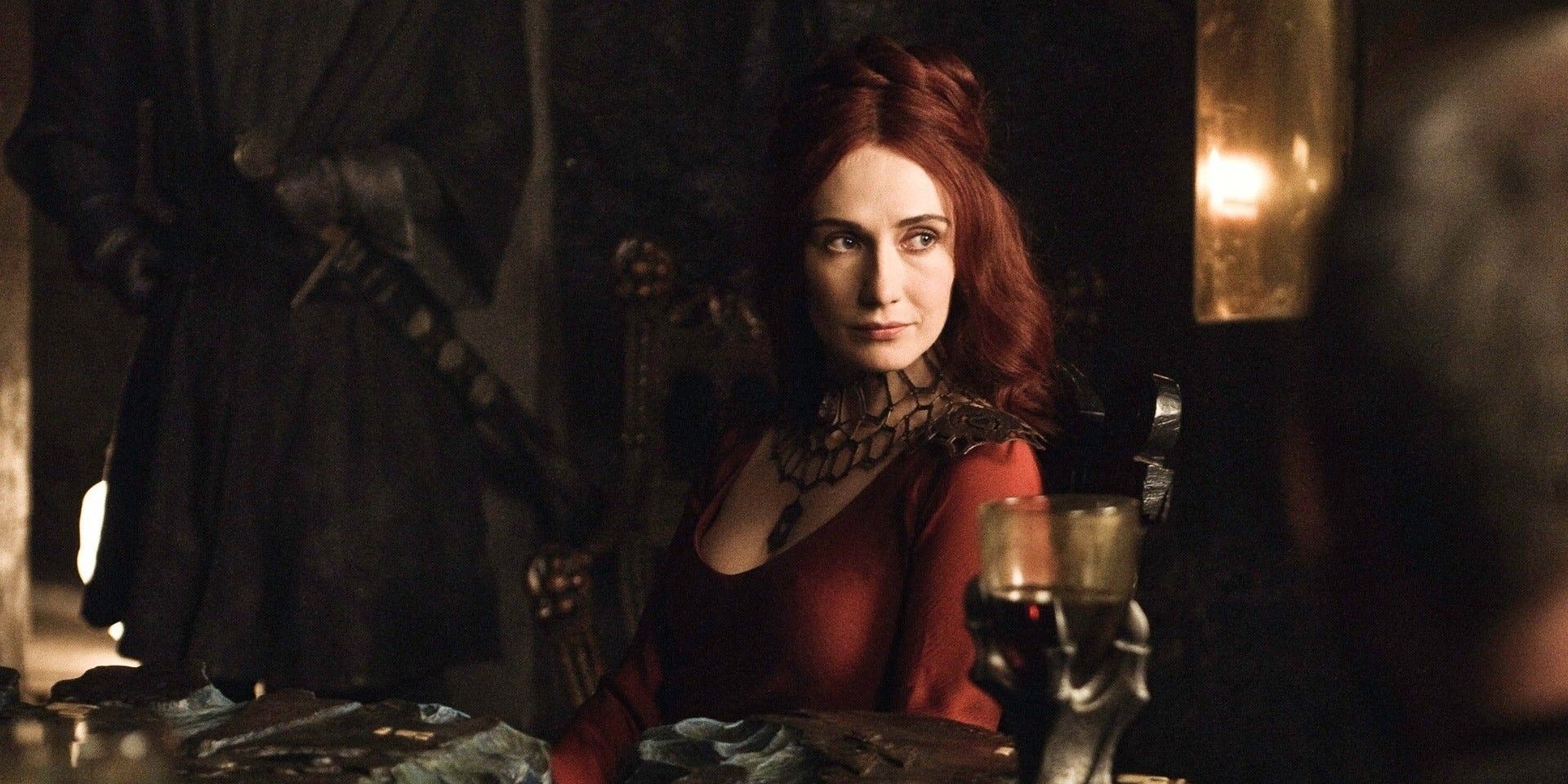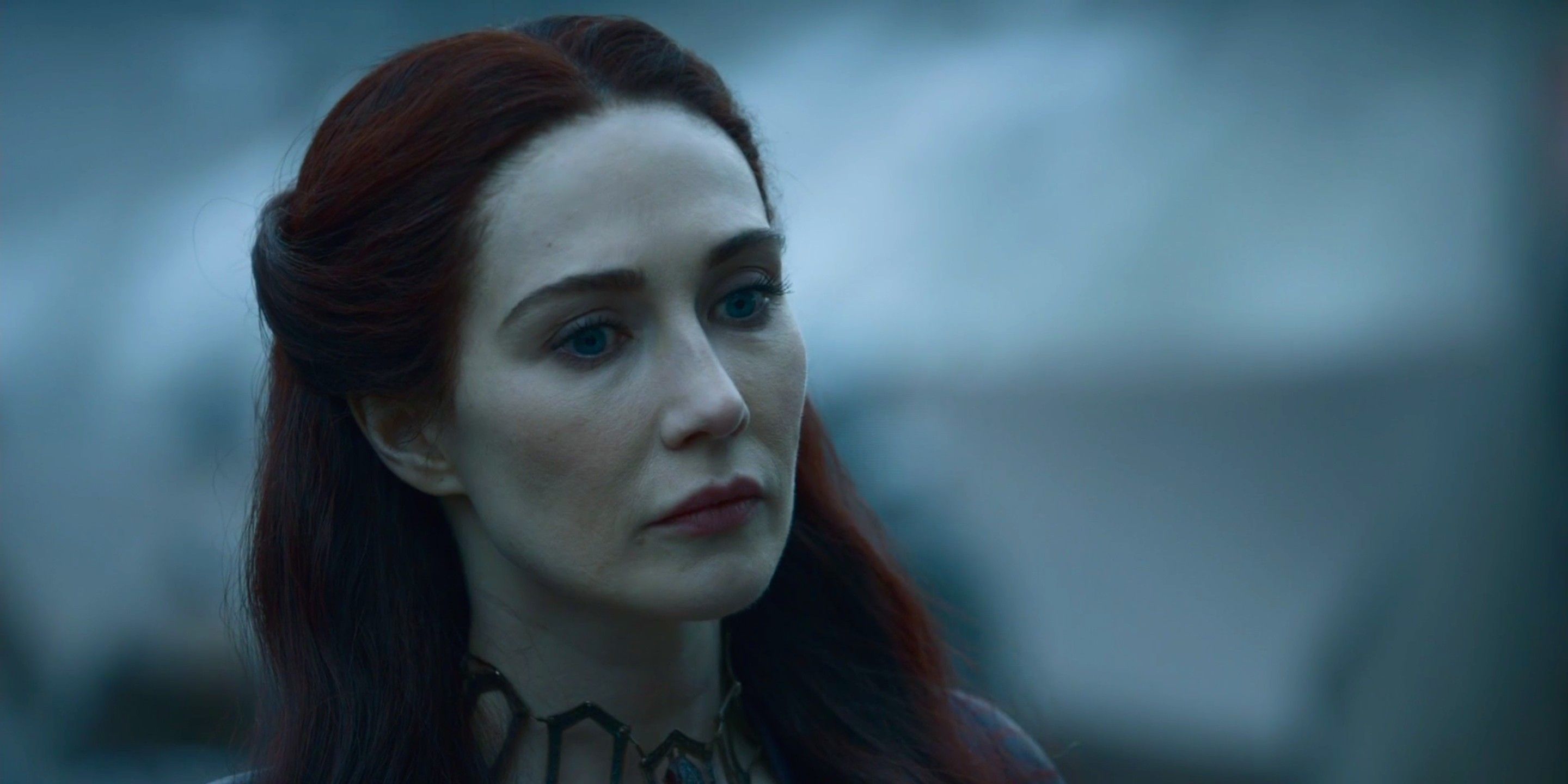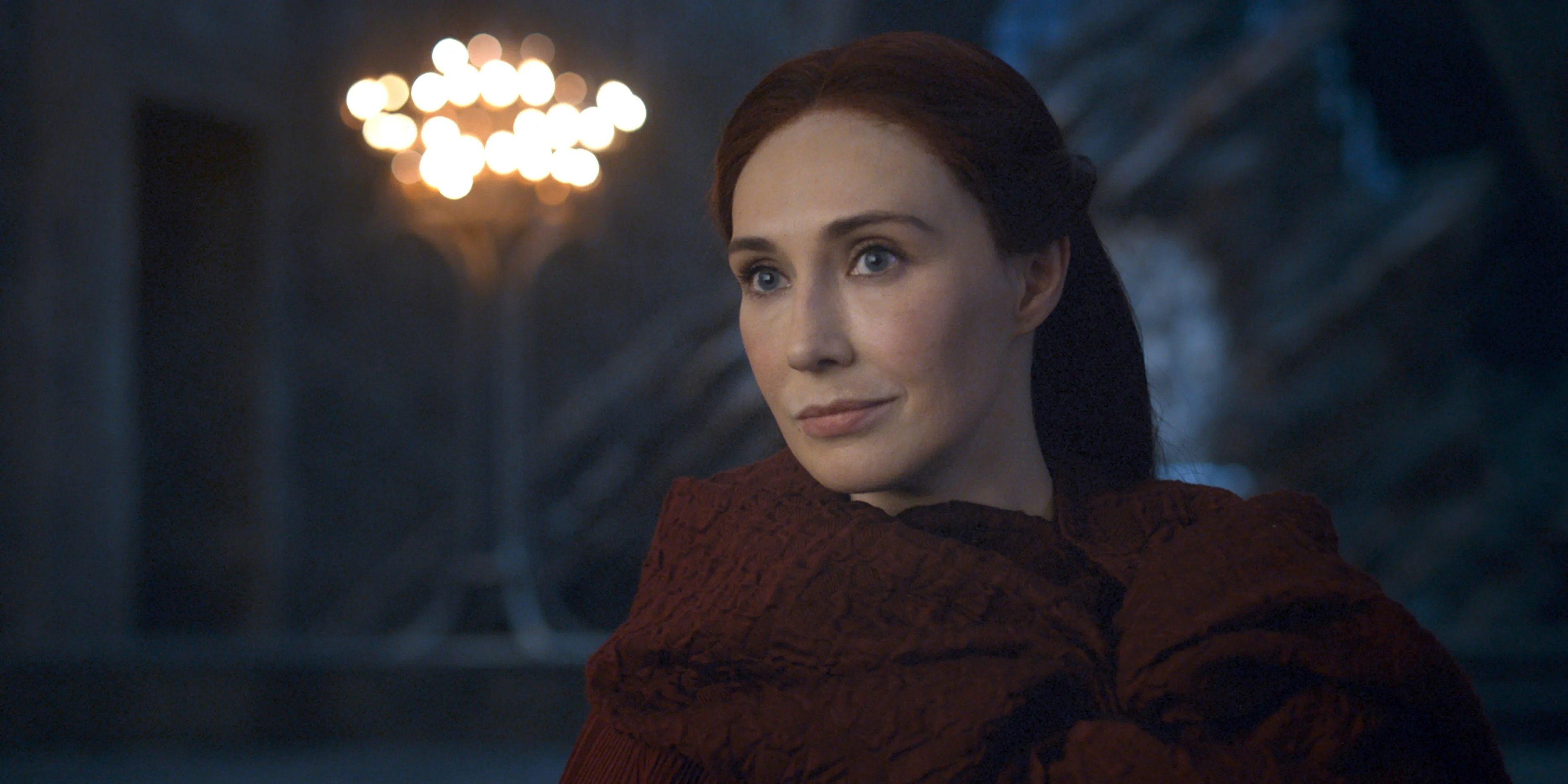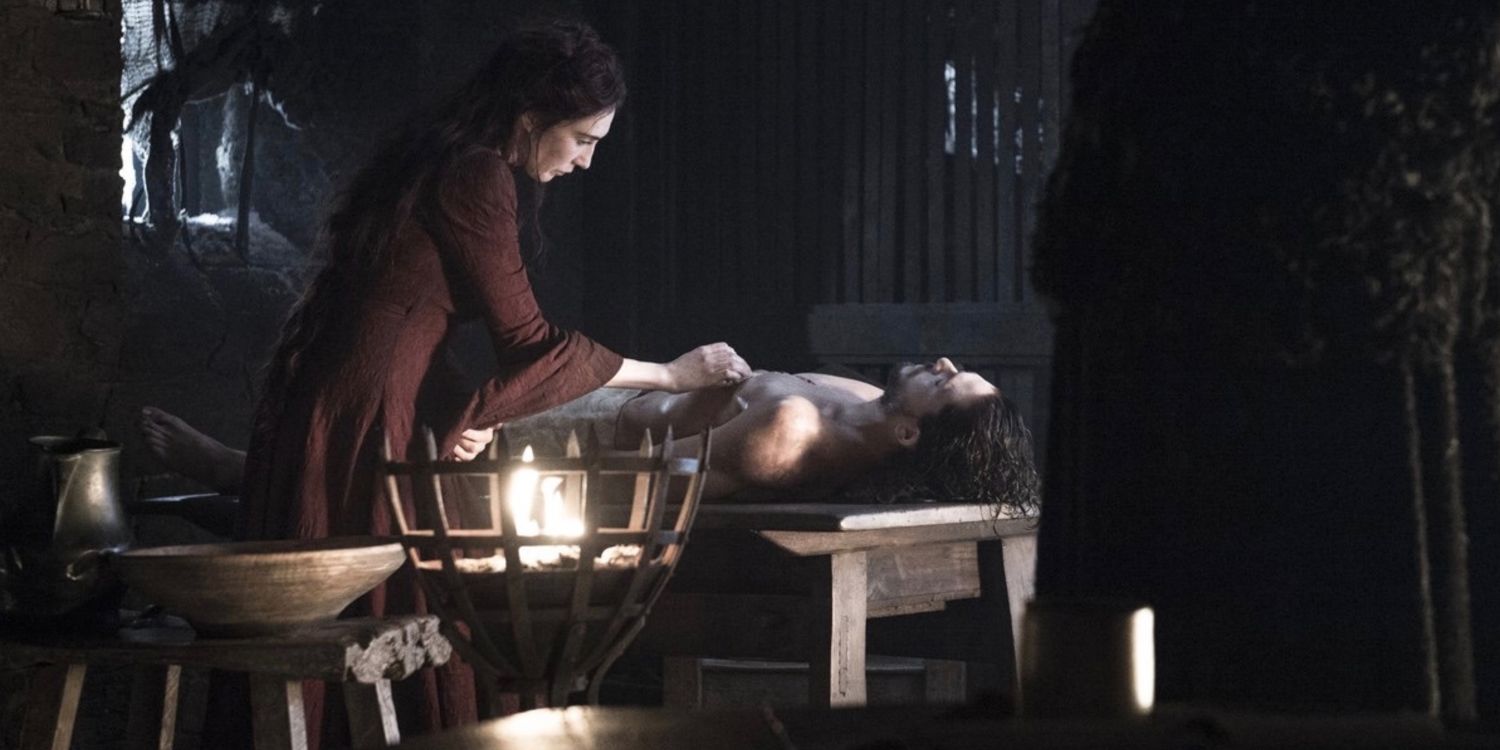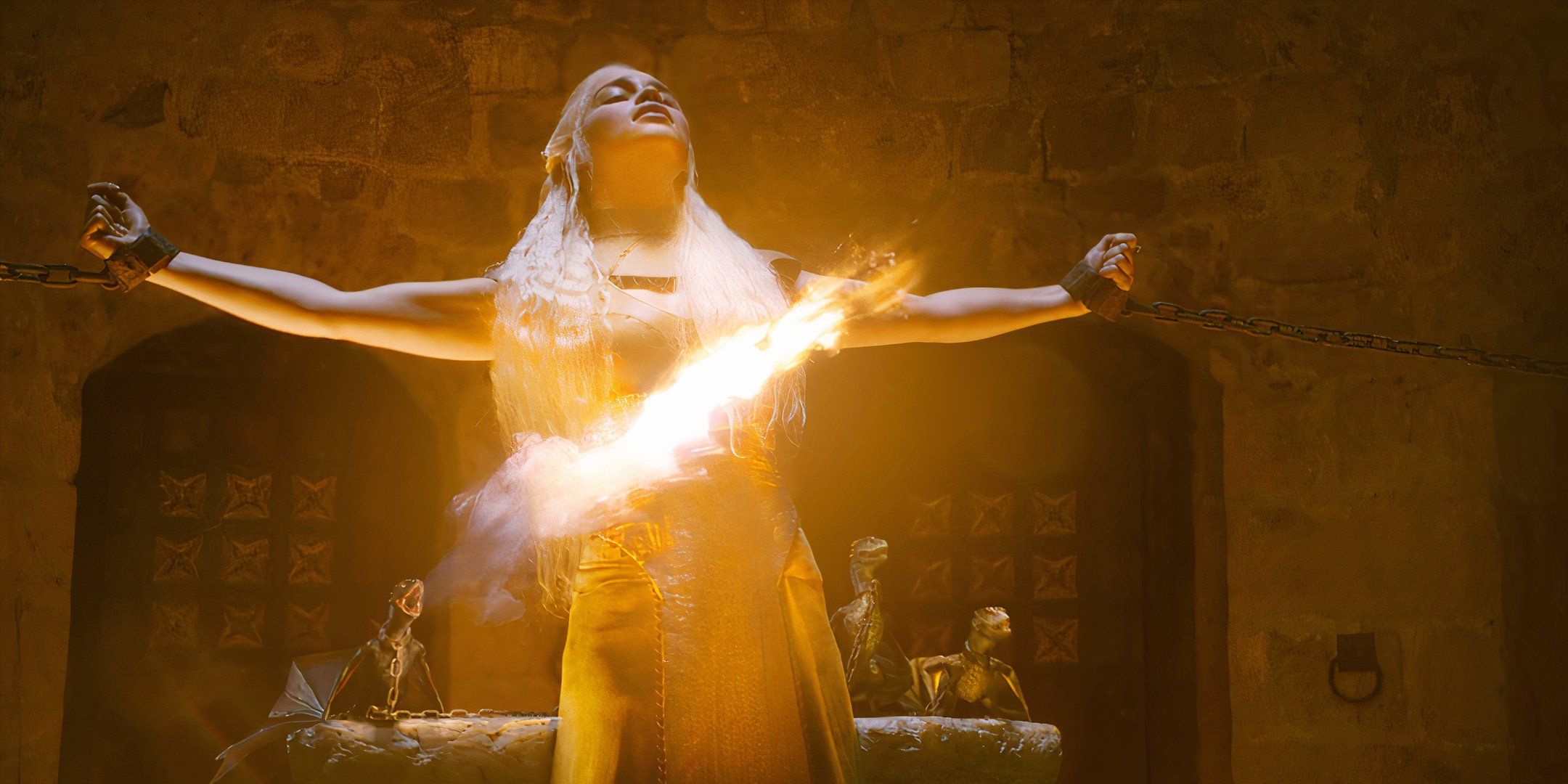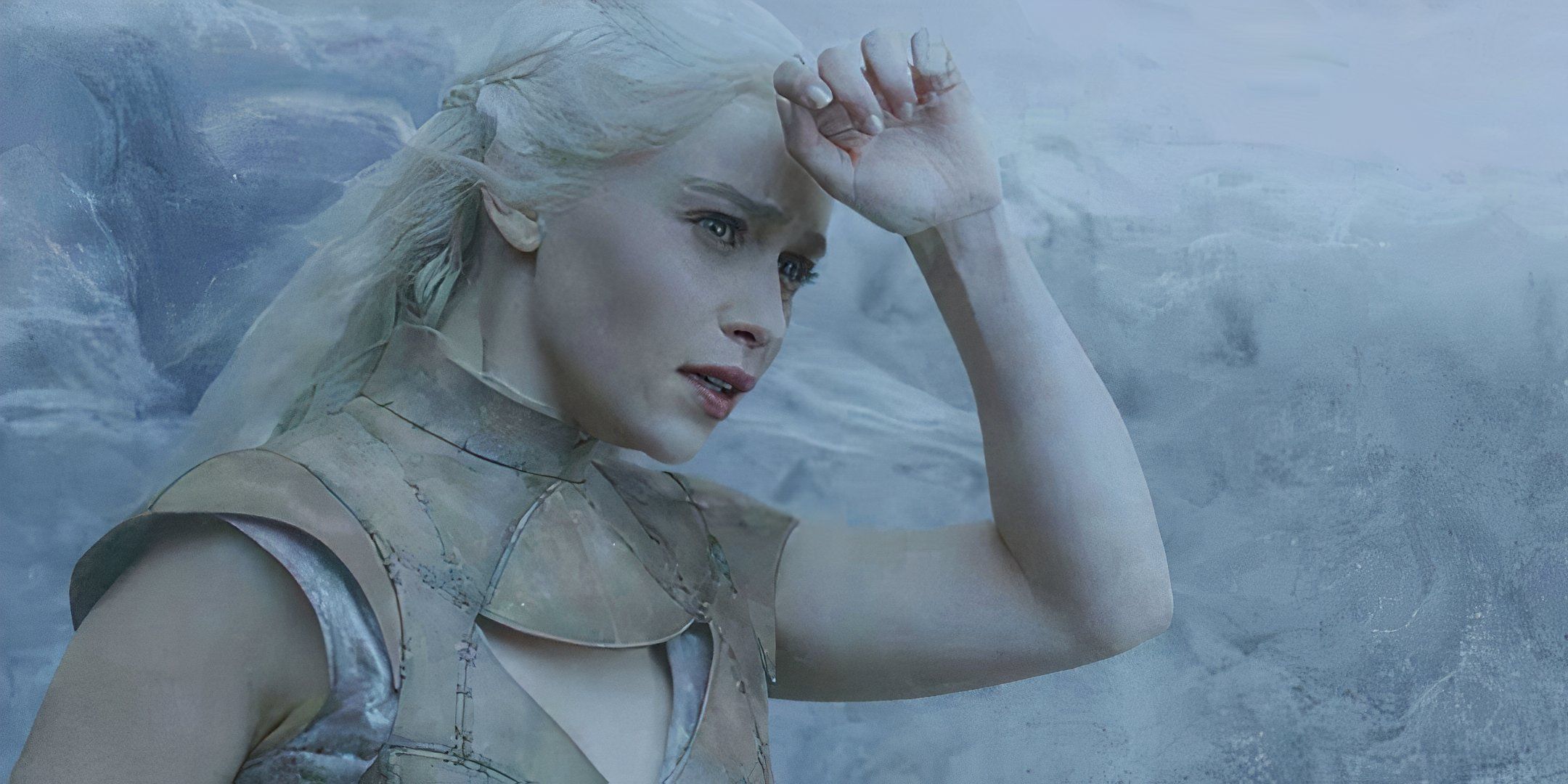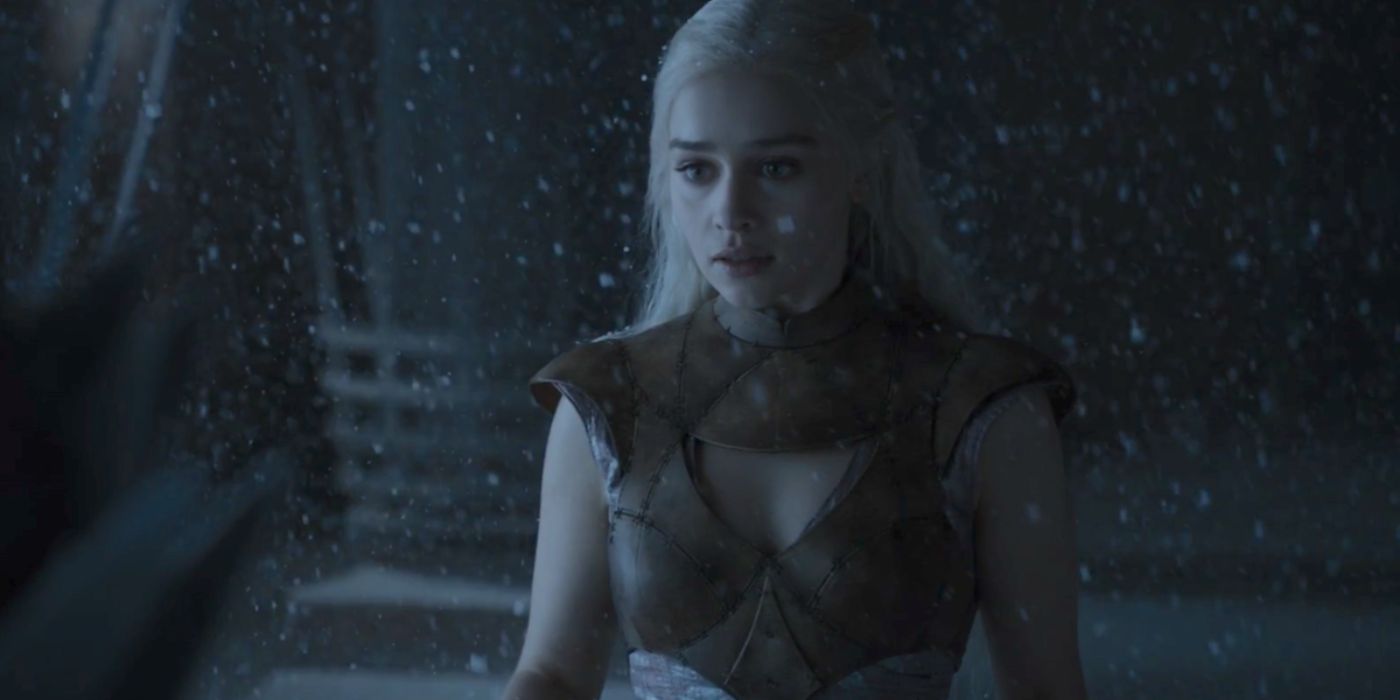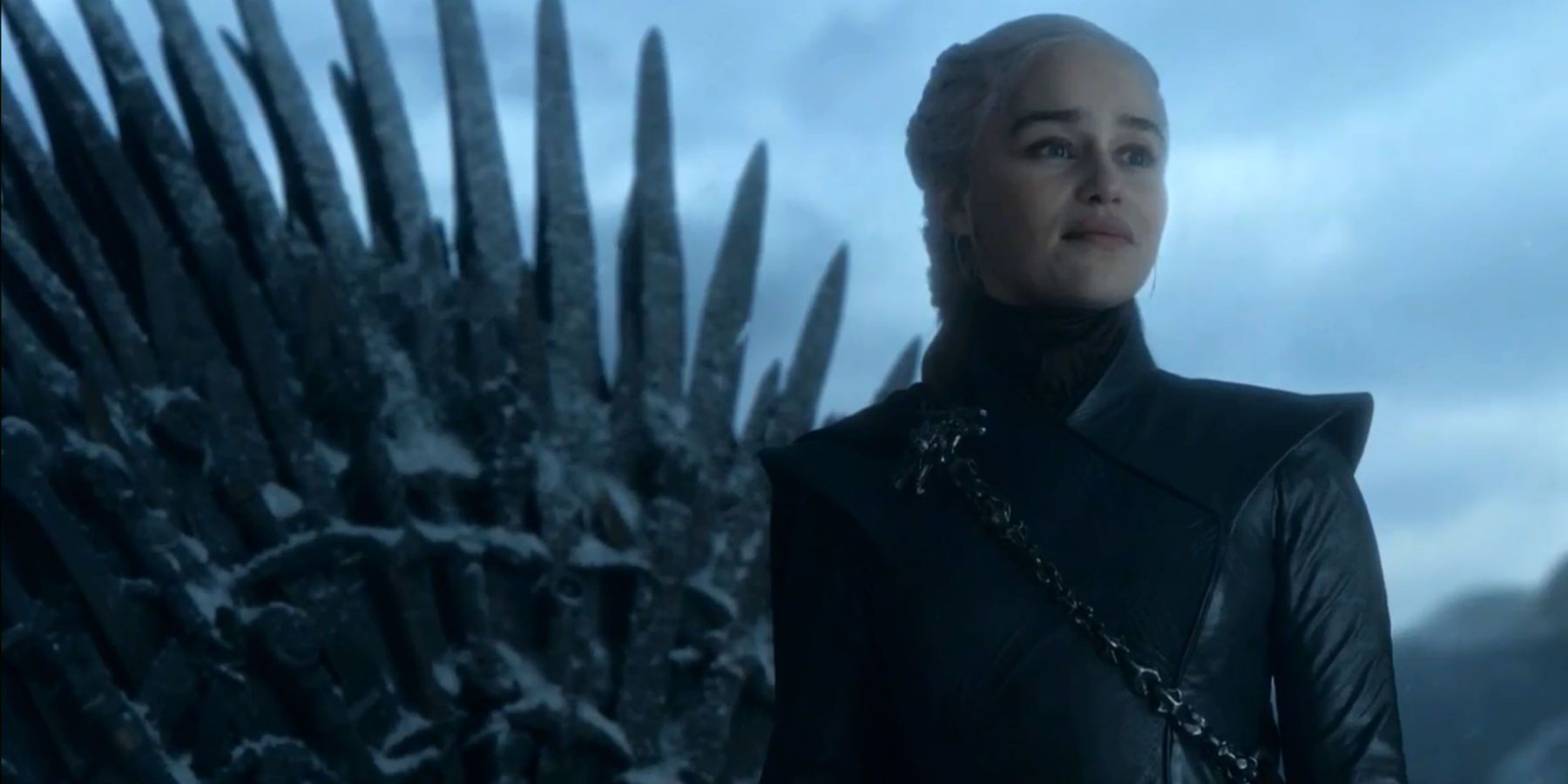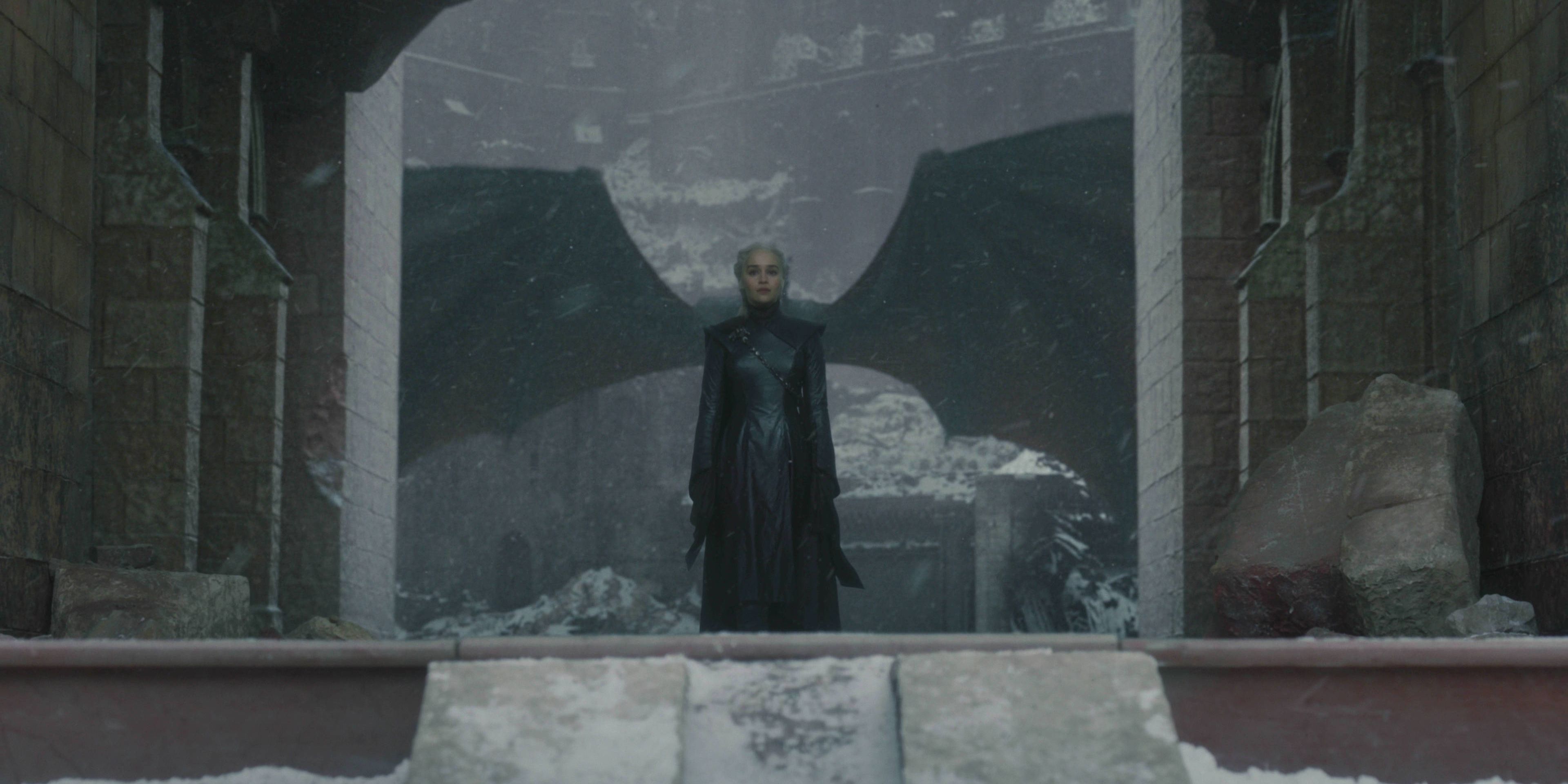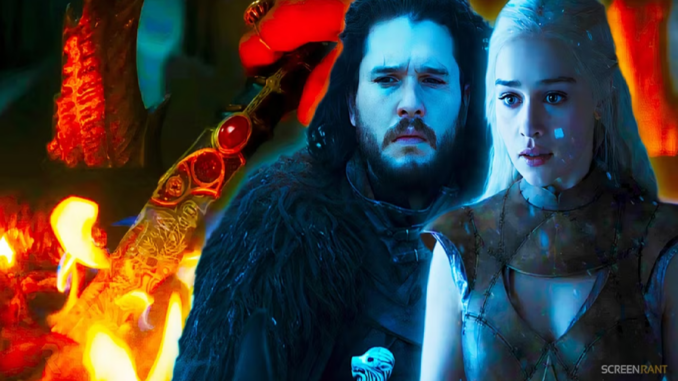
Aegon’s Song of Ice and Fire prophecy does work very well for House of the Dragon‘s own story, which is, of course, what the prequel should be more focused on. It has made it a core part of Rhaenyra Targaryen’s arc, and the misunderstanding stemming from the prophecy directly led to the Dance of the Dragons. It’s also a smart shift to House Targaryen’s history, reframing it and giving it a grander purpose. But as far as Game of Thrones goes, it’s not so good.
6. Aegon’s Dream Proves The White Walkers Died Too Quickly
Westeros’ Greatest Threat Needed More Time
I like Game of Thrones season 8 a lot more than most, but rushing through the Night King’s death remains a problematic area. Having been introduced in the pilot’s cold open, even before a single main character, they did deserve more than just three episodes in the final season. Of course, the truncated nature of season 8 meant that wasn’t possible, and the Battle of Winterfell is still good (lighting issues aside), but it’s one of the parts where more episodes really would have benefited things.
The Song of Ice and Fire really just compounds the issue, because it shows this isn’t just a threat that’s re-emerging in Game of Thrones after thousands of years, but one that House Targaryen, at least, may have spent centuries being prepared for. It defined their story, especially with it being the reason behind two of the biggest events in their history – Aegon’s Conquest and the Dance of the Dragons – and that really deserves more than just one episode in Game of Thrones that properly wrapped it up.
5. The Use Of Dragons In The Battle Of Winterfell Is More Underwhelming
Game Of Thrones Season 8, Episode 3 Could Have Done More With Them
It’s pretty clear that Aegon would have believed his and his sister-wives’ dragons – Balerion, Vhagar, and Meraxes – were key to defeating the White Walkers.
His prophecy as a whole, really, implies the importance of dragons in defeating the coming darkness. After all, Aegon conquered Westeros with dragons; Targaryen exceptionalism leads them to believe (whether rightly or wrongly) that they alone have the ability to ride dragons. It’s pretty clear that Aegon would have believed his and his sister-wives’ dragons – Balerion, Vhagar, and Meraxes – were key to defeating the White Walkers.
It’s never explained how or why the Night King can withstand dragonfire – especially when Valyrian steel kills him. If a metal forged from Old Valyrian, believed to be by magic and dragonfire, can destroy him, why not a creature whose lineage also belongs to Old Valyria and includes magic? It’s possible George R.R. Martin has a solution to it in the book (though the Night King does not exist), but with Aegon’s dream suggesting a key role for the dragons, it made it all the more complicated.
4. Aegon’s Song Of Ice & Fire Means Jon Snow Should Have Killed The Night King
House Of The Dragon Only Adds To The Setup For It
Not to keep going on about the White Walkers (though that’s exactly what I’m going to do), but Aegon’s Song of Ice and Fire prophecy does suggest Jon Snow should have killed the Night King. Although Daenerys was the one planning on taking the Iron Throne, it was Jon Snow who had the stronger claim and, as the son of a Targaryen and a Stark, was the embodiment of ice and fire, meaning the “song” in question was about him.
When it came to Game of Thrones itself, I was always somewhat conflicted over Arya killing the Night King, but came down positively on it. Yes, it had absolutely set up Jon Snow more than anyone else, and Arya was an attempt at subverting expectations, but it was also extremely difficult to begrudge her that moment. After so many years of training, for the person who had to forego her identity to kill the Night King while defending her home is powerful. Aegon’s dream takes away from that, and puts the onus back on Jon.
3. Aegon’s Dream Confirms Game Of Thrones Wasted The Prince That Was Promised Prophecy
The Show Could Have At Least Mentioned The Prophecy More
Game of Thrones never really did a great deal with the prophecy and didn’t confirm who the Prince That was Promised was.
Game of Thrones never really did a great deal with the prophecy and didn’t confirm who the Prince That was Promised was. Melisandre made a few references to it, and changed her mind several times on who it might be, but in the end, it didn’t have a tangible impact on things. That was always a bit disappointing: not that the story needed to be defined by the prophecy, but the way these prophecies can determine character decisions, arcs, and show how destiny (or attempts to avoid it) can become self-fulfilling are powerful parts of the books.
The show didn’t need to 100% confirm who the Prince That Was Promised Was – Martin’s books may not, either. But it should have done more than pay lip service to it. That it’s so rooted in Targaryen history only makes that worse.
2. Game Of Thrones Should Have Included Rhaegar In Daenerys’ Season 2 Visions
A Lot Of Dany’s House Of The Undying Visions Were Cut
Among them is one of Rhaegar, who speaks to Daenerys about his son, Aegon. He says that “he is the Prince That Was Promised, and his will be the song of ice and fire.” That was already one of the more egregious cuts: it connects to the prophecy, to Daenerys’ arc, seemingly to Jon Snow’s parentage, and it is a rare instance where the title of the book series is directly stated in the text. Now that it also connects to Aegon’s dream and is building on centuries of Targaryen history, it further shows it should have been included.
1. Daenerys Should Have Been Queen Sooner – And For Longer
Daenerys Didn’t Become Queen Until Just Before She Was Killed
I think this, in part, actually speaks to how things will happen in Martin’s books, where Daenerys will burn King’s Landing – likely in conflict with her nephew, Aegon Targaryen, aka Young Griff, who was revealed to still be alive in A Dance with Dragons (or it’s claimed to be him). After that, she could go forth and fight in the Long Night against the Others (whether compelled by prophecy or not), which could make for a stronger story than how Game of Thrones did it.
